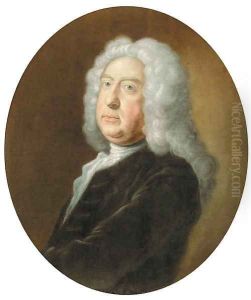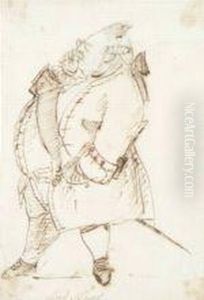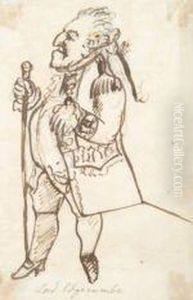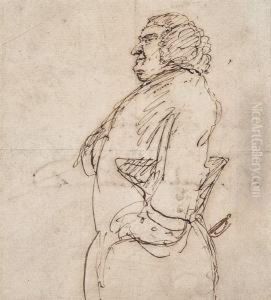George 1st Marquess Townshend Paintings
George Townshend, 1st Marquess Townshend, was born on February 28, 1724, into an aristocratic family in Norfolk, England. He was the son of Charles Townshend, 3rd Viscount Townshend, and Audrey (Ethelreda) Harrison. Townshend was educated at St John's College, Cambridge, and later embarked on a military career, which was common for young men of his social standing.
From a young age, Townshend showed an interest in the military and public service. His military career began with the War of the Austrian Succession, where he served with distinction. He continued to rise through the ranks, participating in several key battles during the Seven Years' War. His service included a period as an aide-de-camp to King George II in 1743 and participating in the Battle of Dettingen during the War of the Austrian Succession.
Townshend's political career ran in parallel with his military service. He was a Member of Parliament for Norfolk from 1747 to 1764 and was known for his support of the Whig party. His time in politics was marked by his involvement in debates on military and colonial policy, reflecting his experiences in the army.
Despite his successful military career, Townshend is perhaps best known for his role in the American War of Independence. As a general, he was second in command to General James Wolfe at the Battle of Quebec in 1759, which was a pivotal victory for the British. However, he later served as the British commander-in-chief in America, where his tenure was less successful. His time in America was marked by tensions with other officers and controversial decisions, and he eventually returned to Britain in 1773.
Upon his return to England, Townshend continued to be involved in political and military matters. He was created Marquess Townshend in 1787, reflecting his standing in British society. He also held the position of Master-General of the Ordnance and was a member of the Privy Council.
George Townshend, 1st Marquess Townshend, passed away on September 14, 1807, at the age of 83. His legacy is a complex one, encompassing significant military achievements as well as political and personal controversies. His descendants continued to play prominent roles in British public life, and the Townshend family remains an important name in the history of the British aristocracy.



